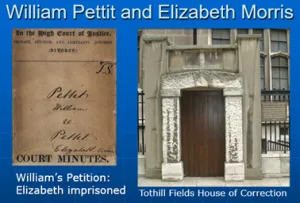Discover fascinating and sometimes unpleasant stories about your ancestors through genealogical research. Learn about individuals who did not quite fit into the norms of their times and explore the historical contexts that shaped their lives. Uncover your family lineage with professional genealogists while respecting your preferences for sensitive information.
Have you ever wondered what hidden stories lie in your family tree? Genealogy has the power to unravel the mysteries of your ancestry, revealing both heartwarming tales and those that may leave you a little perplexed. Today, we delve into the intriguing world of family history research and explore the possibility of having a “black sheep” among your ancestors.
Genealogy is a journey that takes you back in time, allowing you to walk in the footsteps of those who came before you. It is a quest to understand not only your lineage but also the historical and social contexts in which your ancestors lived. While many family histories are filled with stories of heroism, love, and resilience, there are instances where we come across individuals who do not quite fit into the traditional narratives.
At Research Through People, we’ve had the privilege of unearthing countless stories from the past. Sometimes, these stories involve ancestors who were, in one way or another, considered the “black sheep” of their families or communities. In this blog, we will share some examples of such cases and shed light on the factors that may have led to their unconventional paths.
Michael: Frequent Visitor at Court

In the 19th century, legal records provide fascinating insights into the lives of ordinary people. We came across Michael, who frequently found himself in trouble with the law. His offenses ranged from public drunkenness to disturbing the peace, and even using obscene language. These records reflect a different time and society where such behaviour was deemed unacceptable.
Illegitimacy: Sarah’s Secret
Another common theme in genealogy research is the discovery of illegitimacy in family histories. We stumbled upon the case of Sarah, who lived with her family in 1841 but gave birth to her son Alfred George Oakley in 1842 with no father’s name recorded. The baptism record showed her address as the Workhouse, hinting at the possibility that Sarah had entered the Workhouse to have her child, a practice used to keep births secret in those times.
“Feein’ Out”: Farm Workers in Scotland
The historical context of the work and living conditions of farm workers in Scotland provides valuable insights into the lives of our ancestors. Until the later 20th century, farm workers often moved from one farm to another, and married men and their wives worked together on farms. Young or unmarried men lived in communal lodgings known as “bothies,” where they shared rough accommodations and even engaged in music-making to pass the time. Women and girls were also hired as domestic servants around the farmhouse. They would also share ‘intimate’ relationships, with an illegitimate child sometimes being an outcome!
John Liles – Bigamy
One particularly sad case was that of John Liles, who married in 1810 – but he already had a wife! So, he was sentenced to seven years of transportation to Australia for bigamy. He was held on a prison hulk in Portsmouth harbour for years, like many others and where tragically, everyone died. This story raises questions about the harsh penalties of the time.
William Pettit and Elizabeth Morris: A Troubled Marriage

The genealogical journey can also reveal stories of troubled marriages. William Pettit and Elizabeth Morris married in 1866 and had six children. However, from 1874 onwards, their marriage was marked by increased drinking and abuse. In 1878, William’s petition documented 17 incidents of abuse and violence, leading to Elizabeth’s imprisonment and a judicial separation.
Jessie Martin: A Tragic End
A most heart-wrenching story was that of Jessie Agnes Martin, a teacher who married Frederick Campbell Baxter in 1923. Tragically, in 1935, Jessie and her 8-year-old daughter Kathleen were murdered by her husband, Ted Baxter. Ted’s plea of insanity shed light on the struggles he faced, and a medical expert attested to his unsound mind for the previous two years.
These stories illustrate the rich tapestry of human experiences that genealogy can unveil. While some ancestors may have been labelled as black sheep, it’s essential to approach these revelations with empathy and an understanding of the historical context. Our professional genealogists at Research Through People respect your preferences when it comes to sharing sensitive information, ensuring that your family’s history is explored in a way that aligns with your values.
Genealogy allows us to discover the complexities of our past, bringing history and our ancestors to life. Whether you find heroes, rogues, or ordinary individuals in your family tree, each story adds depth to your understanding of where you come from. So, are you ready to embark on your ancestral journey? Reach out to us, and let’s uncover the fascinating stories that await in your family’s history.





